From Oct. 26 to 28, , AAPG Geoscience Technology Workshop was held in Beijing. It was hosted by AAPG and Geological Society of China and Geological Society of China and organized by China University of Petroleum and AAPG-UPC Research Center. More than 200 speakers from eight countries shared their ideas, cases and research findings. 33 reports were given, exploring deepwater exploration systems, deepwater offshore discoveries and deep and ultra-deep strata onshore.
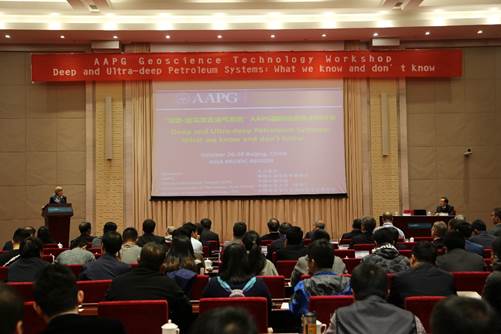
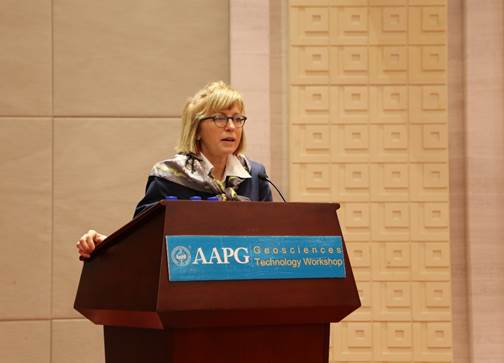
Susan Nash from AAPG delivered the welcome message.
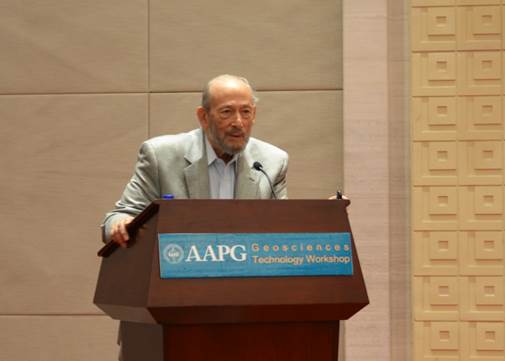
Prof. Roger Slatt from University of Oklahoma gave the report titled ''A 360 km long outcrop analog to global deep water reserviors: Jackfork Group, Arkansas, USA'.
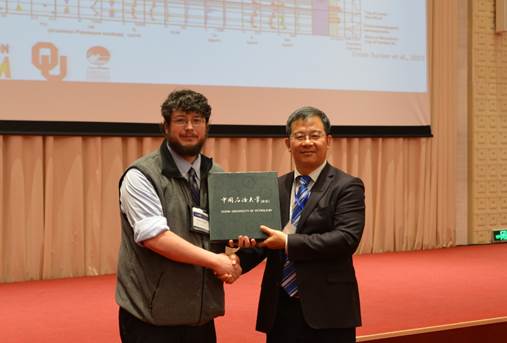
Presenting souvenir to Prof. Bryan Turner from Morrison Natural History Museum.
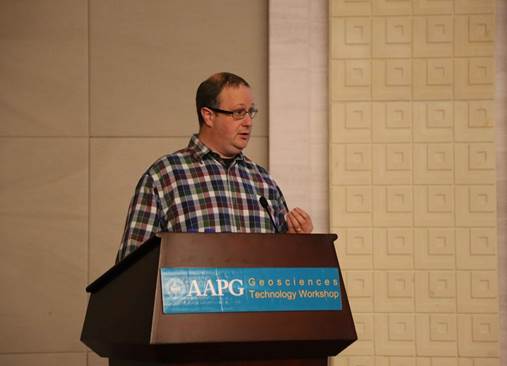
Prof. Mark Tingay from University of Adelaide gave the report titled ''Play-based pore pressure prediction’: using the geoscience of overpressure to improve drilling safety and find new hydrocarbon discoveries'.
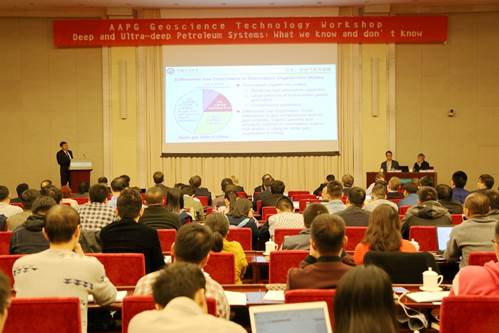
President HAO Fang of UPC gave the report titled 'On the potentials and mechanisms for the development/preservation of deep to ultra-deep high-quality carbonate reservoirs'.
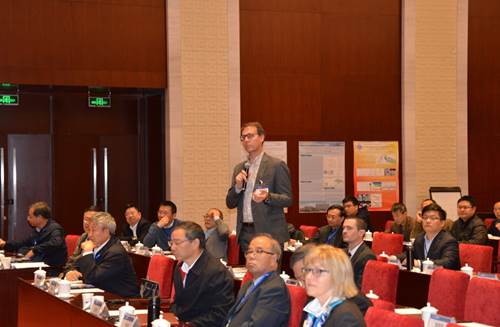
The workshop proved to be fruitful and highly acclaimed. According to Prof. Jon Rotzien from Basin Dynamics LLC, AAPG GTW highlights the new methods of deep and ultra-deep petroleum system to response the industrial challenges and the drilling practice done on the similar basins in the world. Prof. Oleg Batalin and Nailya Vafina from Russia wrote a letter to AAPG, giving high praises to the workshop and the achievements Chinese scholars have made in the study of deep petroleum systems.
Established in May 2018, AAPG-UPC Research Center was one of the three divisions which AAPG has set up in China. It mainly focuses on the following work: hosting joint sessions and workshops in China, supporting conferences and short-term classes on petroleum and geology of the university, enhancing the communication of academic communities of the two sides; supporting the research and academic publishing of petroleum, geoscience and engineering; exploring more potential areas for cooperation.
